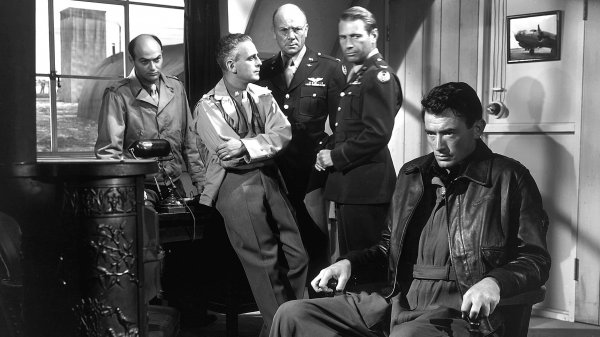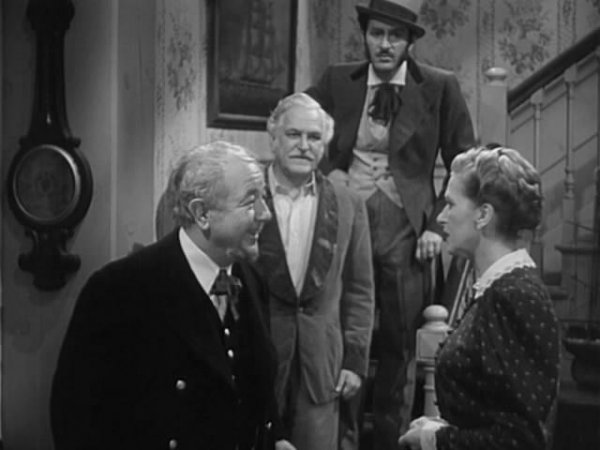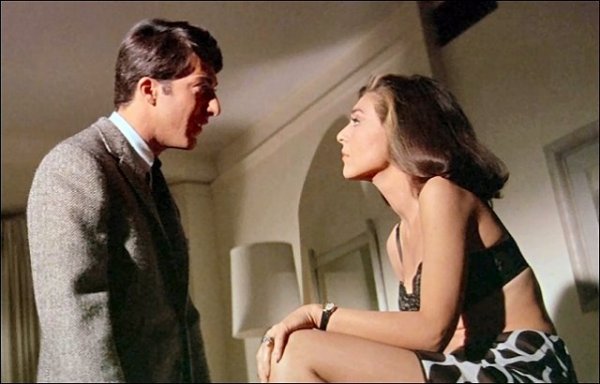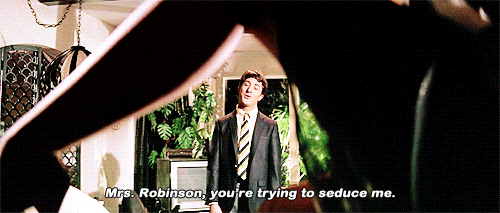Harp
I'll Lock Up
- Messages
- 8,508
- Location
- Chicago, IL US
View attachment 393252
The Narrow Margin from 1952 with Charles McGraw, Marie Windsor and Jacqueline White
"Let's cut out any of the boring set-up or filler stuff and just go for broke with a taut seventy-one-minute story pitting the good guys versus the bad guys on a claustrophobic train speeding cross country. We'll strip a noir story down to its fundamental parts and film only that." One assumes director Richard Fleischer said something similar to this before creating The Narrow Margin, his outstanding austere noir.
He started with an ostensibly simple story about a couple of detectives escorting the widow of a mob boss on a train trip from Chicago to Los Angeles. There, she is scheduled to be a material witness naming names at a high-profile crime-syndicate trial. But Fleischer also packed a romance, an internal affairs investigation and a morality tale inside his story.
Right out of the shoot, when two detectives show up at a seedy Chicago tenement to take custody of the witness, one is shot dead, forcing the other one to scramble to get his witness to the train safely.
The mob throws everything it has at stopping them as several gangsters board the train with more positioned along the route. Additional mob members stalk the Los Angeles-bound train by car.
In a period version of today's cellphone communication, the mob and the police make extensive use of telegrams, sent to and from stations where the train stops. The frequent display of telegram copy on screen in The Narrow Margin foreshadows how, fifty-plus-years later, modern TV and movies regularly display text messages to advance the plot.
On the train, detective Charles McGraw (a Lawrence Tierney doppelganger) uses every trick he can - shifting his charge from room to room, feints and, when necessary, force and gunfire - trying to keep the government's material witness from harm.
That material witness, the widow of the mob boss, Marie Windsor, doesn't make it easy as her arrantly selfish attitude - (paraphrasing) "It's your job to keep me safe, so figure it out and, no, I don't care that your partner was killed protecting me" (okay then) - makes her unsympathetic: but what a performance by Windsor.
Angry because his partner was just killed and because of Windsor's cold arrogance, McGraw pauses a moment when a smooth mob boss offers him a huge bribe to look the other way so that the mob can do what it wants to do. It's a small but poignant morality tale moment.
Windsor's been so brutal, you would have almost understood if he took it, but he doesn't. That's good for McGraw, as (spoiler alert) he is being surveilled as part of an internal affairs investigation that plays on in the background of this surprisingly layered story.
After the bribe attempt, it's more claustrophobic-train cat-and-mouse games, while at the same time, McGraw befriends a woman traveling with her son and nanny.
Their flirtation quickly turns into an affair, despite McGraw not having the time - sometimes you have to take it on the run. This seemingly unimportant vignette will be tied into the main narrative in a surprising way right at the end. The Narrow Margin is well-crafted.
A few near missed attempts on McGraw's and Windsor's lives follow as the mob amps up its efforts with more thugs using more guns and more violence. McGraw starts to fatigue trying, all by himself, to hold back wave after wave of attack.
The climax, like the train and story, speeds by quickly. After a big twist is revealed, several loose ends and story threads (more than you realize were in play) are neatly tied together. The Narrow Margin has its flaws, but it's a darn good seventy-one minutes of noir boiled down to its essentials.
Never ever saw this. Seems a Chicago Union Station=Los Angeles modern 3.10 to Yuma and stacked
chock full with condiment like a Wrigley Field hot dog hawked outside ball park down the street,
where a dog can be properly leashed. None of the simple sqiggle yellow mustard plot liner, this train
is loaded down: lotza lead, ladies, laid backin'. And I ain't a gona buy this stew. Too, waytoo much
ingredients spoil the film for me.
Excellent insightful analysis however.






